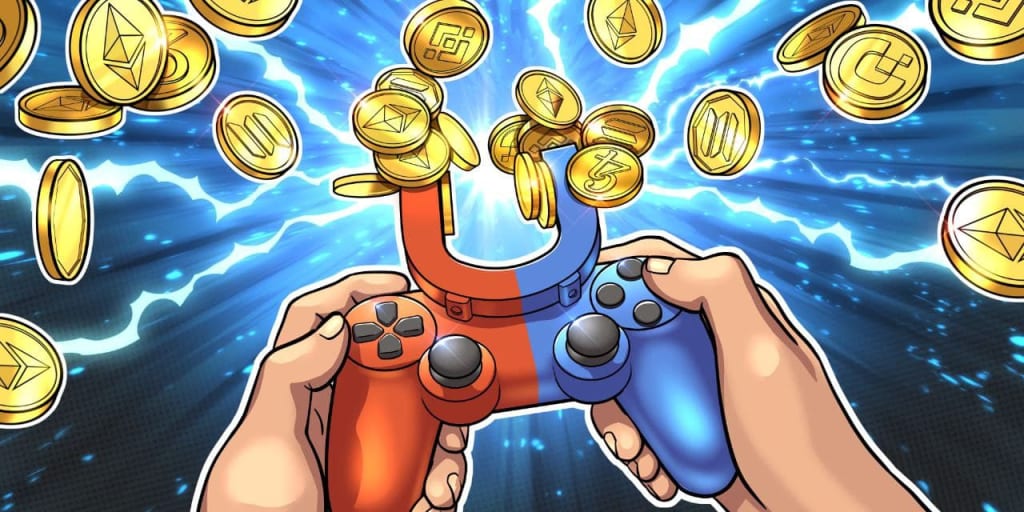Web3 Game Development vs Crypto Game Development: What's the Difference?
Web3 Game Development vs Crypto Game Development

Web3 game development and crypto game development are two distinct areas of game development that are often confused with each other. While they share some similarities, they have different goals, mechanics, and user experiences. In this blog post, we'll explore the differences between Web3 game development and crypto game development.
Web3 Game Development
Web3 game development refers to the creation of games that are built on top of decentralized networks, such as Ethereum, Polkadot, and Solana. These games are powered by blockchain technology, which provides a transparent, secure, and decentralized platform for players to interact with each other and with the game world.
Web3 games typically use non-fungible tokens (NFTs) to represent in-game assets, such as weapons, characters, and items. These NFTs are unique, verifiable, and can be traded on blockchain marketplaces, such as OpenSea and Rarible. Web3 games also use smart contracts to govern the game rules and mechanics, which are transparent and cannot be manipulated by centralized entities.
Web3 games are often characterized by their open, decentralized, and interoperable nature. Players can interact with each other in real-time, trade assets on open marketplaces, and participate in decentralized autonomous organizations (DAOs) to govern the game development and operations. Web3 games are also known for their play-to-earn (P2E) mechanics, where players can earn cryptocurrency by participating in the game world and contributing to its growth.
Crypto Game Development
Crypto game development, on the other hand, refers to the creation of games that use cryptocurrency as a core game mechanic. These games are not necessarily built on top of blockchain networks, although some of them may use blockchain technology for certain aspects, such as payments or item trading.
Crypto games typically use cryptocurrency as a reward for players who complete certain tasks or challenges in the game. For example, a game may reward players with Bitcoin for solving puzzles or completing quests. These games often have a strong emphasis on player skill and strategy, and may require players to have a deep understanding of cryptocurrency and blockchain technology to succeed.
Crypto games are often characterized by their use of cryptocurrency as a core game mechanic, and their focus on player skill and strategy. These games are not necessarily decentralized or open, and may be operated by centralized entities.
Key Differences
The key differences between Web3 game development and crypto game development can be summarized as follows:
Web3 games are built on top of decentralized networks, while crypto games may or may not use blockchain technology:
Web3 games are built on top of blockchain networks and use smart contracts to govern game rules and mechanics. This provides transparency and security for players, as well as a decentralized platform for interactions and transactions. In contrast, crypto games may use cryptocurrency as a game mechanic but may not necessarily use blockchain technology. For example, a game could use a centralized server to manage game interactions and payments, but offer cryptocurrency as a reward or in-game currency.
Web3 games use NFTs to represent in-game assets, while crypto games use cryptocurrency as a core game mechanic:
In Web3 games, NFTs are used to represent unique in-game assets such as characters, weapons, and items. These NFTs can be traded on blockchain marketplaces, giving players ownership and control over their assets. In crypto games, cryptocurrency is often used as a core game mechanic. Players may earn or spend cryptocurrency within the game, or the game itself may be built around cryptocurrency trading and speculation.
Web3 games are open, decentralized, and interoperable, while crypto games may be operated by centralized entities:
Web3 games are built on decentralized networks, allowing for open and transparent interactions between players. These games are often interoperable, meaning that assets and data can be shared between different games and platforms. In contrast, crypto games may be operated by centralized entities, giving them more control over game mechanics and economics.
Web3 games have a strong focus on play-to-earn mechanics, while crypto games may reward players with cryptocurrency for completing certain tasks or challenges:
Play-to-earn (P2E) mechanics are a key feature of Web3 games, where players can earn cryptocurrency by participating in the game world and contributing to its growth. This creates an incentive for players to engage with the game and contribute to its success. Crypto games may also offer cryptocurrency rewards, but they may be tied to specific tasks or challenges within the game, rather than an overall contribution to the game's success.
Conclusion
Web3 game development and crypto game development are two distinct areas of game development that have different goals, mechanics, and user experiences. While they share some similarities, they represent different approaches to leveraging blockchain technology in game development. Web3 games are characterized by their open, decentralized, and interoperable nature, while crypto games are characterized by their use of cryptocurrency as a core game mechanic. Developers who are interested in creating blockchain games should carefully consider the differences between these two approaches and choose the one that best aligns with their goals and objectives.
About the Creator
Dean Johns
I'm Dean Johns, CEO of Shalong Pvt Lmt. And also a Leading crypto inverstor over Past 8 Years. Giving Tips & Tricks to all People about Crypto Inverstment who Wants to inverst Your Money on Crypto in Future Days.






Comments
There are no comments for this story
Be the first to respond and start the conversation.